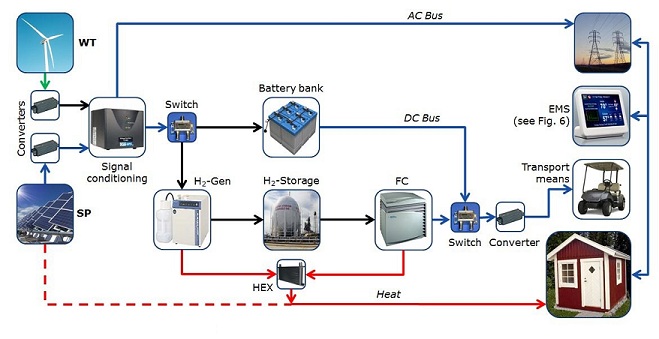Renewable Energy Park, RE-Park (completed)
Use of green energy generated by solar and wind power technologies would help contribute to a clean and secure energy future for Sweden compared to conventional fossil energy resources. Along with the EU-directive for renewable energy of July 2009, Sweden declared that its primary national target is at least 50% of its total energy use would be from renewable energy resources by year 2020, and out of that, there would be at least 10% in transport sector.
Combining renewable energy with modern energy saving techniques and IT-applications will necessarily lead to significant energy-efficient decisions that would profit the consumer and secure the competitiveness of the Swedish industries. Several studies have estimated the general saving potential to be in the range of 20-40% of the total energy costs in addition to the reduced impact on the environment.
The concept of the Renewable Energy Park (RE-Park) will play an increasingly important role in the nation energy portfolio targeting the renewable energy integration in smart city with net-zero energy housing and healthcare facilities. The RE-Park is an assembly of small power-generating modules, energy storage system and energy management protocols in order to improve the operation of the electricity and heat supplying system in both presence and absence of a grid connection facility. The project involves the development of communication protocol over the internet which is ready for smart grid applications to monitor, control and manage the RE-Park for electricity and heat delivery options.

For information about this project, please see:
